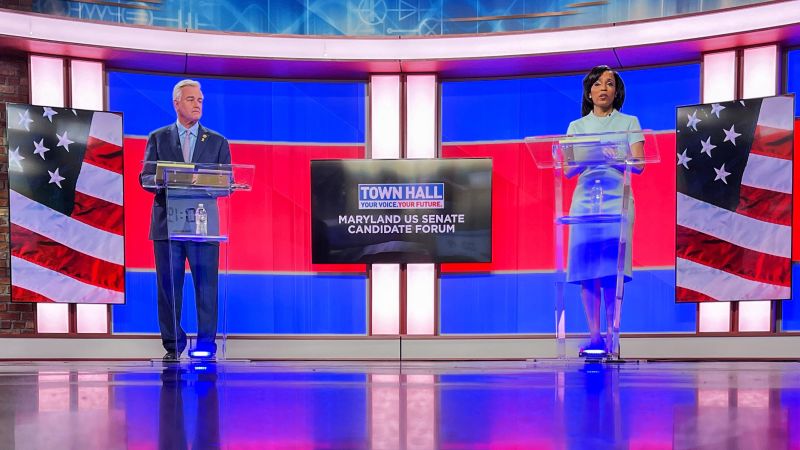The Democratic Senate primary race in Maryland features Angela Alsobrooks, the executive of Prince George’s County, who is vying to become only the third Black woman ever elected to the Senate. She faces off against Democratic Rep. David Trone, who has spent about $60 million of his own money on the election. The race has divided Congress, with the Maryland delegation supporting Alsobrooks and House Democratic leaders backing Trone. The eventual nominee will likely face former GOP Gov. Larry Hogan in November, posing a challenge for Democrats to hold the Senate majority.
Alsobrooks is focusing on her experience as a contrast with Trone, emphasizing issues like protecting abortion rights and making her lived experience a point of difference in the campaign. The race isn’t just about identity politics, with female supporters highlighting Alsobrooks’ qualifications beyond her gender. Trone, on the other hand, touts his electability and ability to get things done in the Senate, despite facing criticism for his campaign ads.
The primary electorate in Maryland is about 40 to 45% Black, making it essential for both candidates to appeal to this demographic. Trone has garnered support from Black women, including local leaders, despite Alsobrooks being a Black woman vying for the Senate seat. Some voters prioritize performance over identity, as seen with a French teacher who is leaning toward Trone due to her disappointment with Alsobrooks’ record as county executive.
Alsobrooks’ campaign emphasizes her accomplishments and qualifications, including her experience as a domestic violence prosecutor. She has garnered support from prominent figures like Ellen Malcolm and members of Maryland’s current congressional delegation. The impact of electing a Black woman to the Senate is significant for diversity and representation but is not the sole focus of Alsobrooks’ candidacy.
Trone’s campaign highlights his self-funding ability and experience in Congress, arguing that he can work across party lines to get legislation passed. Despite facing criticism for attack ads and accusations of misogyny and racism, Trone’s supporters applaud his background and successful business ventures. The financial advantage of Trone’s self-funding has sparked debate among voters, with some viewing it as a negative aspect in the race.
The race between Alsobrooks and Trone comes down to their differing approaches to governance, experience, and backgrounds. While Alsobrooks highlights her qualifications and priorities if elected to the Senate, Trone focuses on his track record in Congress and financial independence. The outcome of the primary will determine which candidate will face the challenges of facing Hogan in November and the potential impact on the Senate majority.













